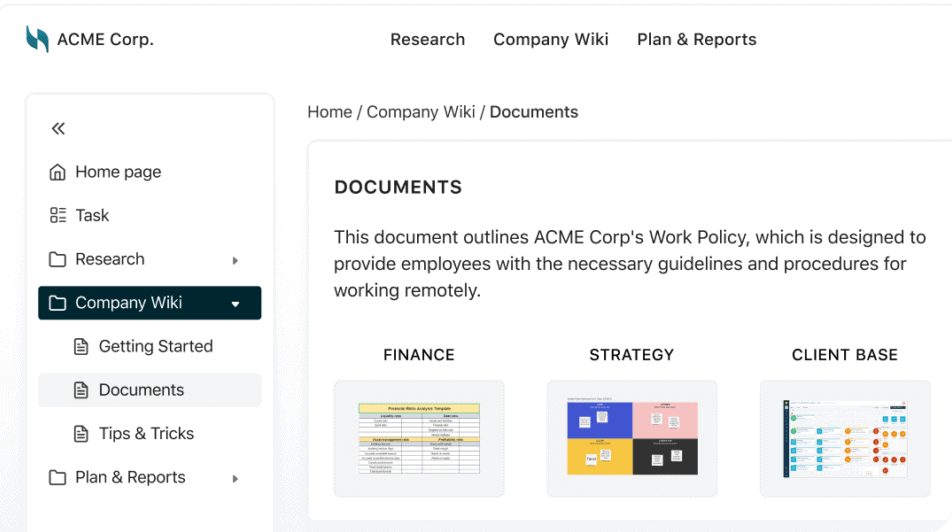
How a Culture of Sharing Can Help a Start-up Succeed: 4 Key Tips
- January 12, 2024
- 6 Min read
Nine out of ten startups fail. You’ve probably heard that disappointing yet truthful statistic. Some of the most significant reasons are lack of product-market fit (34%), marketing problems (22%), and teamwork challenges (18%). Does the latter factor surprise you? How can the issues inside a team cause more damage than financial insufficiency and tech failures?
Well, in fact, it’s not surprising at all. Good internal collaboration and team performance are the driving force of your business success. If your managers and employees can reach a well-established mutual understanding culture and share knowledge to achieve the desired result, nothing can stop them.
However, fruitful communication requires special attention and a meticulous approach. Knowledge is power, but how do you encourage your team members to exchange it? Keep reading this article to find out!
Our post will explain knowledge sharing, its impact on your business growth, and the key ways to promote it to your team.
What Is Knowledge Sharing?
Before we move on to our handy tips, let’s clarify what we mean by knowledge sharing.
So knowledge sharing is a process of transferring important information, insights, and opinions between the members of a team, organization, or any other community.
In developing a startup, knowledge shared across the team is essential. It allows employees to boost their productivity, apply agile approaches, and be more flexible in a rapidly changing environment. Besides, it becomes an integral part of company culture and boosts employee morale.
Result-driven communication can work a miracle. According to a McKinsey survey, using robust social technology can increase a team’s productivity by 20-25%. Our recent blog post shared multiple helpful tips on enhancing remote teams’ performance and productivity. Read it to find out!
4 Helpful Tips To Help You Get Started
Many traditional ways to share knowledge like emails and constant physical meetings are becoming less relevant nowadays. According to a 2019 Upwork survey, more than 70% of modern businesses expect a full or partial transition to remote work by 2028. Unsurprisingly, a startup needs to apply alternative internal communication and knowledge exchange methods.
The following tips will help you make the knowledge-sharing process an integral part of your company culture and an essential job requirement.
Help Your Employees Understand the Importance of Knowledge
Knowledge activities integrated into your business culture will motivate your employees to keep communicating information. For a start, it’s crucial to explain the importance of the knowledge to your team.
Every member should understand the culture sharing value and its impact on the development of your organization. They may re-evaluate their roles and create a new, more open workplace environment. In this case, knowledge-sharing activities perceived as something extraordinary will be left in the past. Instead, they will become a part of your team’s common culture sharing principles.
Promote Knowledge Sharing
According to recent research, the knowledge-sharing culture should be encouraged and welcomed. The study claims that the motivation to share knowledge can be very diverse: from the desire to help others — to expecting an organizational or reciprocal reward.
So here, a project manager or a mentor can succeed when making effort to show the advantages of sharing knowledge and cultivating it at all levels.
In other words, try to make sharing knowledge a job requirement. Here are several helpful tips in this regard:
- Define leaders. Reward team members for making effort to share knowledge and involve others in this process. Use their talent to enhance collaboration and productivity.
- Make use of mistakes. Communicate to your team that even their mistakes are worth sharing. In fact, they deliver no less essential knowledge than positive experiences.
- Encourage helping others. A joint effort is a key to successful collaboration. With that in mind, is helping colleague a mind-boggling act? No, it’s a natural behavior fitting your company culture or even one of the critical work requirements.
Learn more about sharing information with a team in our recent blog post.
Apply Cross-functional Approach
In a cross-functional team, every employee is capable of doing all things the others can do. Of course, it depends on numerous factors like your business specifics, workers’ roles, and project type. However, it’s worth considering knowledge sharing as an efficient collaboration technique. It helps team members understand each other better and learn new things.
The cross-functional approach is widespread for agile teams where additional work requirements often occur. In such cases, good mutual understanding and joint efforts are crucial. The team members share knowledge because it’s the only way to get the job done and create outstanding products.
Such an approach doesn’t require strict project management; however, being capable of sharing knowledge and helping other team members avoid mistakes is essential.
Choose the Right Technology
When it comes to improving knowledge-sharing culture, your team’s effort and good management drive success. However, the desired reward is impossible without powerful, comprehensive, and convenient technology. Fruitful internal collaboration requires a tool your workers can understand and use for remote collaboration.
Gartner’s study claims that the number of employees using communication tools to exchange knowledge has almost doubled since 2019. Why? Because good technologies boost productivity and enhance team organization. At least 92% of the surveyed employees admit it.
However, it’s crucial to choose technology wisely. Otherwise, it may have the opposite effect on communicating knowledge in your team. For example, a confusing or difficult-to-learn project management tool may become a significant obstacle.
Therefore, ensure the chosen technology meets your needs, facilitates work processes, and provides access to the knowledge shared within the team.
Use Fusebase To Take Your Sharing Culture to a New Level

Do you need to choose technology that will be effective and easy to learn simultaneously? FuseBase is a great solution to boost your knowledge sharing culture and increase the team’s productivity. It can help your company organize work processes, motivate employees, and enhance cross-team communication.
Here are our platform’s features your business can benefit from, making the knowledge shared within your team easier to access.
- Super pages. Our technology provides a single well-organized space. It allows you to create and share various content, including dynamic audio and video files.
- Robust integrations. You can take advantage of more than 2000 communication tools and essential apps integrated into the FuseBase, including Google Docs, Google Sheets, Typeform, Figma, Calendly, and more. Thus, your team can access and overview all essential information without passwords.
- Permission management. With our technology, you can manage your employees’ roles and permissions so that they access crucial knowledge related to their tasks.
- Version history. You can keep consistent documentation and view the history of your work. This feature helps track mistakes and make good, result-driven decisions.
FuseBase is the number one choice for a startup or business striving to enhance its knowledge-sharing culture. Our solutions, features, and integrations will allow your team members to access all information they need in a single digital workspace. The technology contributes to your success by enhancing internal communication and facilitating project workflow.
Check it out yourself! Try FuseBase for free, and you will see how our technology works miracles!
Found it useful? Share the article with your community
Subscribe to our blog!
Get weekly tips and insights on how to grow your business